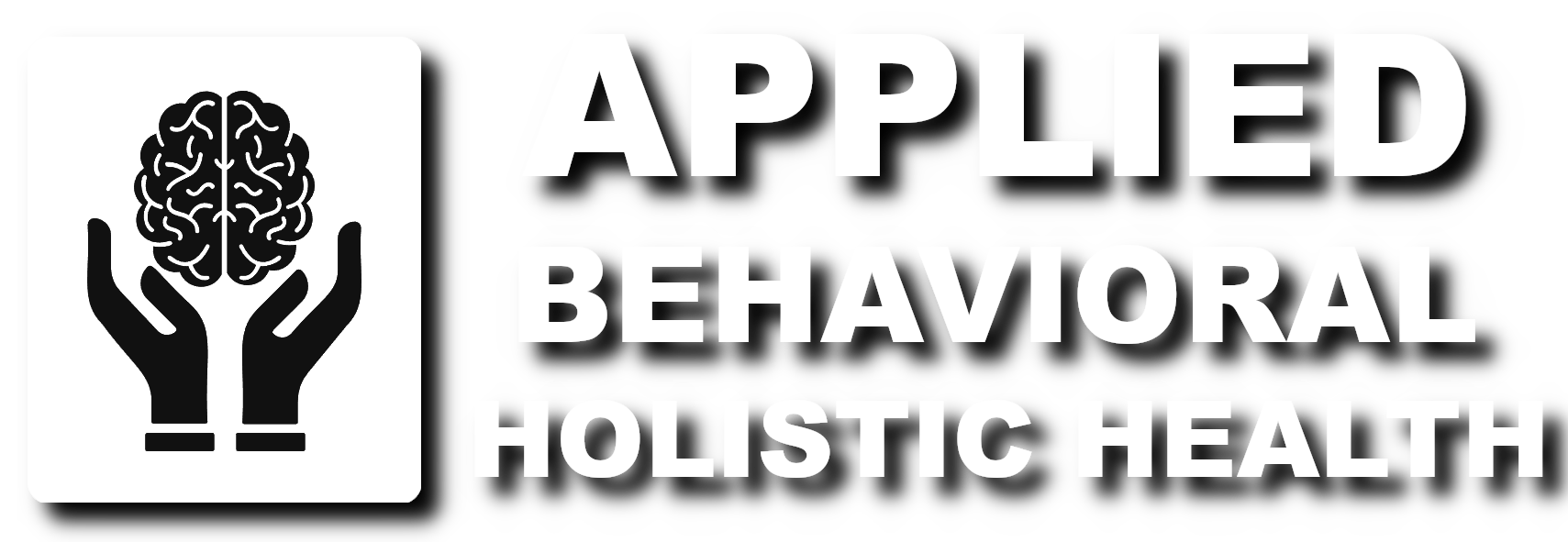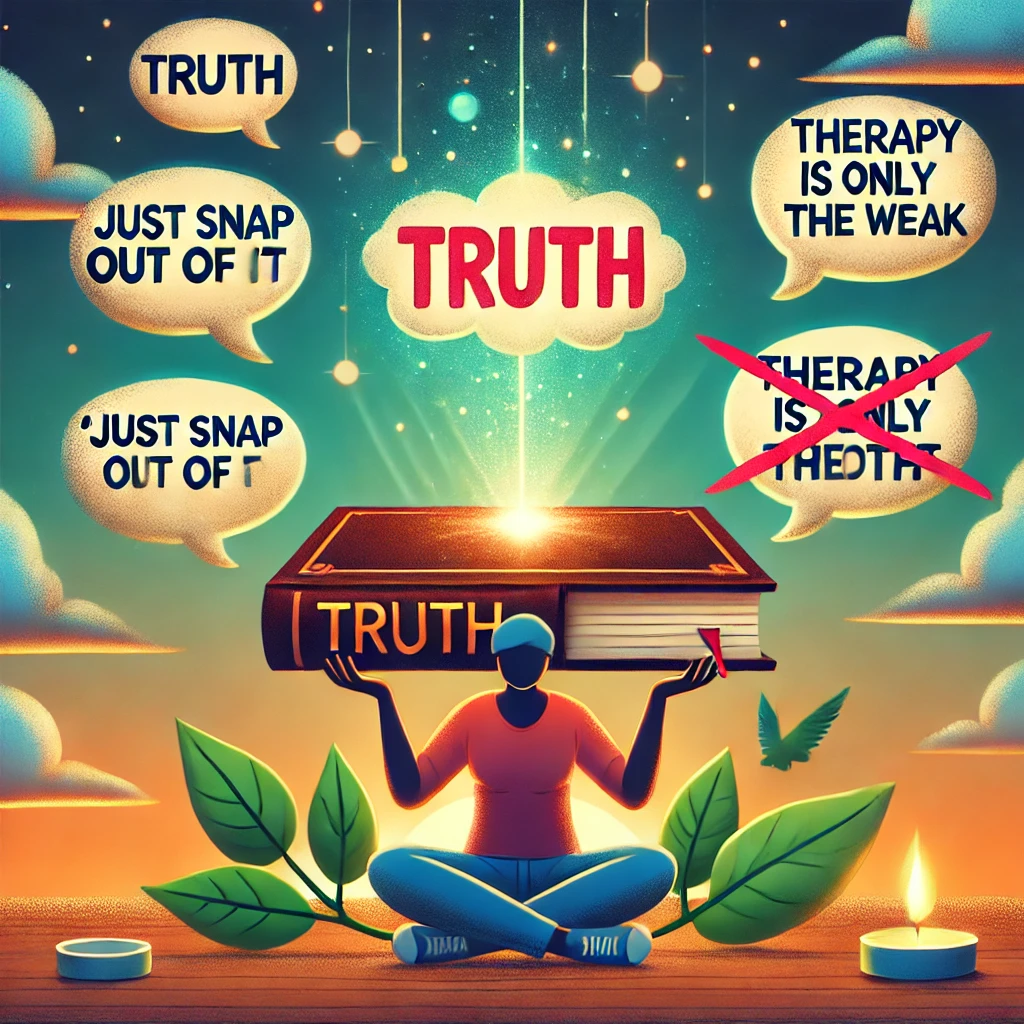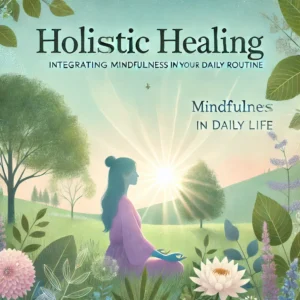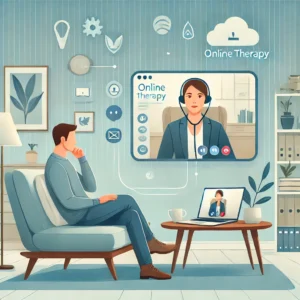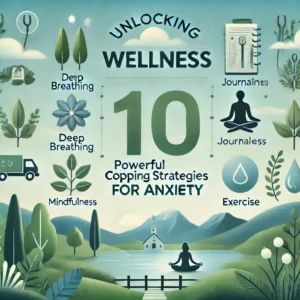Imagine standing in a crowded room where whispers swirl like smoke, growing louder with each breath you take. “They just need to snap out of it,” one voice murmurs. Another chimes in, “Therapy is for weak people.” These whispers represent the pervasive myths about mental health, clinging to us like shadows, distorting our understanding and keeping us from seeking the truth.
In a world where mental health conversations are becoming more common, these myths still linger, creating barriers to understanding, compassion, and healing. Today, we’re pulling back the curtain on these falsehoods and shining a light on what mental health truly entails.
Myth #1: Mental health problems are rare.
The Truth: Mental health challenges are more common than you might think.
Nearly one in five adults experiences mental health issues each year, according to the World Health Organization (WHO). These aren’t distant stories—they’re your coworkers, family members, and even your closest friends. Talking about mental health normalizes these experiences and reminds us we’re not alone.
Myth #2: Therapy is only for “crazy” people.
The Truth: Therapy is for anyone who wants to understand themselves better or improve their life.
Therapy isn’t a last resort; it’s a proactive step toward personal growth. Whether you’re navigating anxiety, processing trauma, or simply seeking clarity in your career or relationships, therapy offers tools to thrive. Think of it as a gym session for your mind—no stigma, just strength-building.
Myth #3: Mental health issues are a sign of weakness.
The Truth: Facing mental health challenges is a sign of incredible strength.
It takes courage to confront pain, fear, or sadness and seek support. Just as we admire those who persevere through physical illnesses, we should celebrate resilience in the face of mental health struggles. Strength isn’t about never breaking; it’s about how you rebuild.
Myth #4: People with mental health issues are dangerous.
The Truth: Most people with mental health conditions are far more likely to be victims than perpetrators.
This harmful stereotype fuels stigma and isolates those in need. Education and open conversations can help dismantle these fears, creating safer, more inclusive communities.
Myth #5: If you just think positively, your mental health will improve.
The Truth: While optimism can help, it’s not a substitute for professional care.
Telling someone to “just think happy thoughts” oversimplifies the complexities of mental health. Sometimes, the brain requires therapy, medication, or a combination of approaches to restore balance. Positivity helps, but it’s not a cure-all.
Breaking Free from Myths: What You Can Do
- Educate Yourself: Knowledge is the first step toward dismantling stigma.
- Open Conversations: Share your experiences and listen without judgment.
- Seek Help: If you or someone you know is struggling, reaching out can make all the difference.
As the whispers of misinformation fade, a new narrative emerges—one of understanding, hope, and healing. The more we challenge these myths, the closer we get to a world where mental health is treated with the respect it deserves.
Let’s bust these myths together and pave the way for a healthier, more compassionate future.
Do you have a mental health myth you’d like to debunk? Share it in the comments below, and let’s keep the conversation going.
About AB Holistic:
At AB Holistic, we’re passionate about promoting holistic wellness for the mind, body, and spirit. Visit us at ABHolistic.com for more insights, tools, and resources to help you thrive.
References for the Blog Article
- World Health Organization (WHO): Statistics on mental health prevalence and the impact of stigma.
- American Psychological Association (APA): Insights on therapy and its benefits.
- National Alliance on Mental Illness (NAMI): Facts and myths about mental health conditions.
- Mental Health America (MHA): Research on the importance of addressing mental health stigma.
- Peer-reviewed studies: Data on mental health conditions and their societal impact.
- Books by mental health professionals: Writings from well-known therapists and psychologists.
These references provide a robust foundation for the information in the blog, supporting accuracy and credibility.
